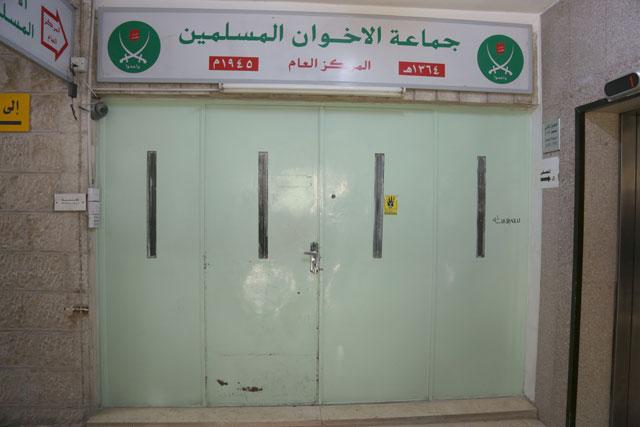You are here
Brotherhood offers dovish leader top position
By Khetam Malkawi - Apr 21,2016 - Last updated at Apr 21,2016
AMMAN — The “old” Muslim Brotherhood (MB) group is willing to enter dialogue with authorities, “especially now”, amid a crackdown on the group that has seen its offices closed in different towns.
Badi Rafaiaa, the group’s spokesperson, said: “We are interested in having dialogue with the government, especially now, not only with the government, but also with any other concerned party”.
He was apparently referring to hundreds of the group’s leaders and members who have defected over the past year and started, or are mulling to start, their own political enterprises, leaving the group in what observers see as a weak position.
The latest move that was seen as a signal of a new and flexible approach adopted by the 70-year-old group is offering a veteran “dove”, who has already left the group, the position of “overall leader”, which he rejected.
Abdul Latif Arabiyat, a former House speaker and veteran educator, was the moderate face of the Brotherhood. He formed the “Group of the Elderly” to mend fences between the rival groups within the MB, but has reportedly given up on that goal after he hit a brick wall.
Although Rafaiaa said Arabiyat has not accepted or refused the proposal, a well-informed source said Arabiyat completely rejected to head the mother group.
Security forces on April 12 raided the headquarters of the old Muslim Brotherhood in Abdali, downtown Amman, and ordered staff there to evacuate the offices and sealed the place. Several offices were shut down after that.
The closure of the offices came in implementation of judicial rulings to transfer properties of the “unlicensed” MB to the rival splinter group that officially registered last year.
Meanwhile, Amjad Qadi, director of the Audio Visual Commissions, said the agency is also following up on the case of the Brotherhood-affiliated Yarmouk Satellite Channel, noting that the channel is broadcasting without licence.
He explained that although the TV is broadcasting from outside the Kingdom, it has programmes that are directed to Jordanians and has signed contracts with companies here.
In this case, Qadi said the channel “also needs to be licensed here”.
Related Articles
AMMAN — The Authorities on Wednesday raided the headquarters of the old Muslim Brotherhood (MB) in Abdali, downtown Amman, and ordered staff
AMMAN — The new Muslim Brotherhood Society is optimistic over the outcomes of an initiative launched by its overall leader Abdul Majeed Thne
AMMAN— The rules of the game in the establishment-Muslim Brotherhood relations have changed after authorities closed the group’s offices 70












